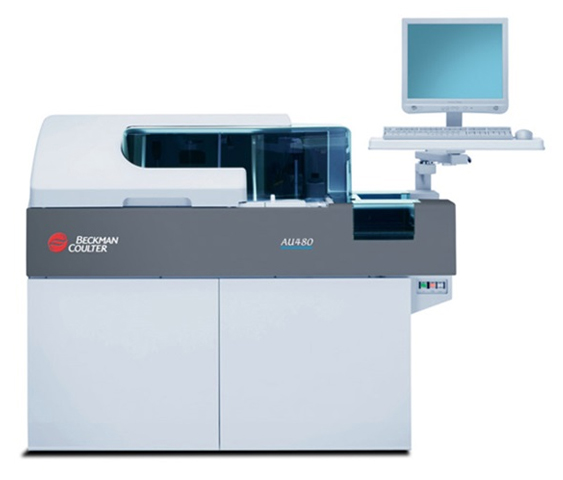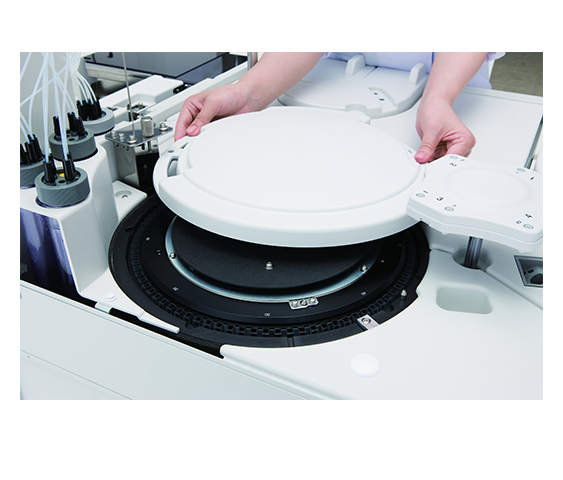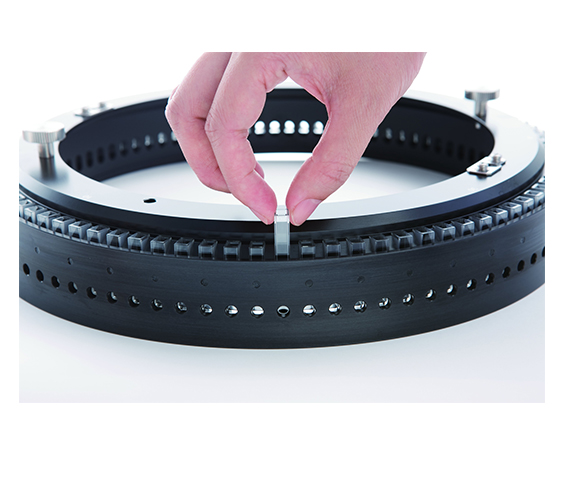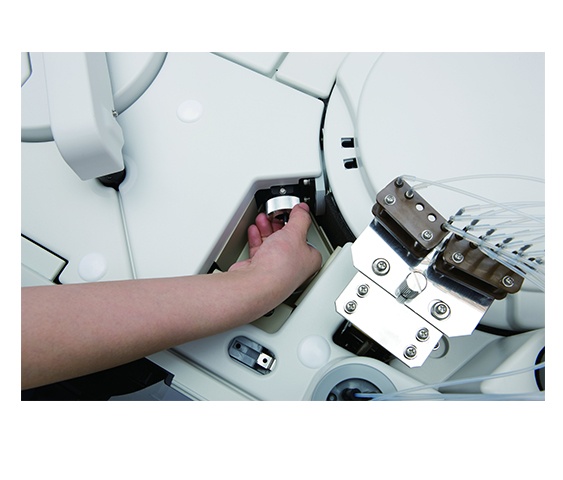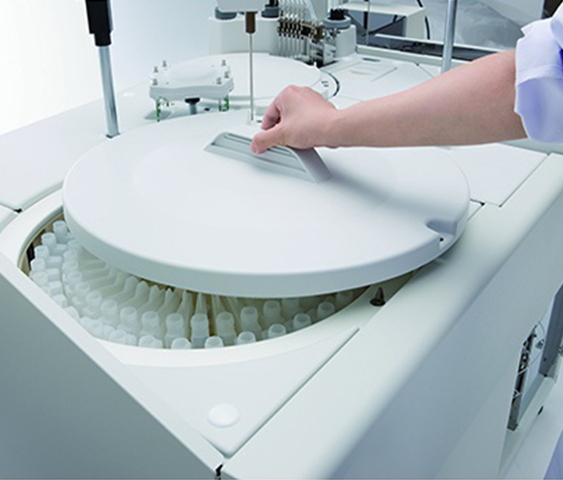|
|
Fully automated, random access chemistry system with STAT capability |
|
|
Spectrophotometry and potentiometry
|
|
|
Endpoint, rate, fixed point and indirect ISE
|
|
|
Colorimetry, turbidimetry, latex agglutination, homogeneous EIA, indirect ISE
|
|
|
60 photometric tests + 3 ISE, 120 pre-programmed onboard tests
|
|
|
400 photometric tests/hour; maximum of 800 with ISE
|
|
|
200 samples/hr. Maximum tests/hr: 600 if ISE only
|
|
|
Serum, plasma, urine, other
|
|
|
Racks with 10 samples each (barcodes on primary tubes and on racks); capacity of 80 samples; continuous loading
|
|
|
Primary and secondary tubes; diameter from 11.5 to 16 mm; height from 55 to 102 mm, nestled micro sample cups
|
|
|
Up to 22 positions for STAT samples via cooled turntable. Easy-to-operate interrupts between tests. Auto-repeat run capability.
|
|
|
1–25 μl in 0.1 μl steps (1-25 μl for repeats)
|
|
|
76 positions for (R1+R2, detergent position). Holds 15, 30 and 60ml bottles.
|
|
|
Refrigerated (4–12°C)
|
|
|
R1: 10–250 μl; R2: 10–250 μl (in 1 μl increment)
|
|
|
90–350 μl
|
|
|
Permanent glass cuvettes
|
|
|
Up to 8 minutes, 37.5 seconds
|
|
|
37°C, dry bath
|
|
|
Direct assay through the reaction cuvette (0–3.0 OD) mono and bichromatic measurements possible
|
|
|
13 different wavelengths between 340–800 nm
|
|
|
Auto calibration, cooled calibrator positions; master calibration established by two-dimensional barcode
|
|
|
Auto QC, cooled QC positions
|
|
|
1. Auto rerun and manual rerun available
2. Automatic sample increase, decrease or normal repeat
3. Reflex testing
|
|
|
Dilution ratio: Fixed to 3, 5, 10, 15, 20, 25, 50, 76 or 100
|
|
|
Individual and profile test requisition via online, mouse, function keys and touch-screen
|
|
|
Lipaemia, Haemolysis and Icterus analysis. Sample clot detection and probe crash protection.
|
|
|
RS232C. Full uni- and bidirectional communication possible.
|
|
|
Windows 7®
|
|
|
Sample number 100,000 samples. Reaction Data 200,000 tests.
|
|
|
ANL: 1450 mm x 1205 mm x 770 mm
|
|
|
100–240v; 60 Hz/ < 3.5 kVA
|
 English
English

